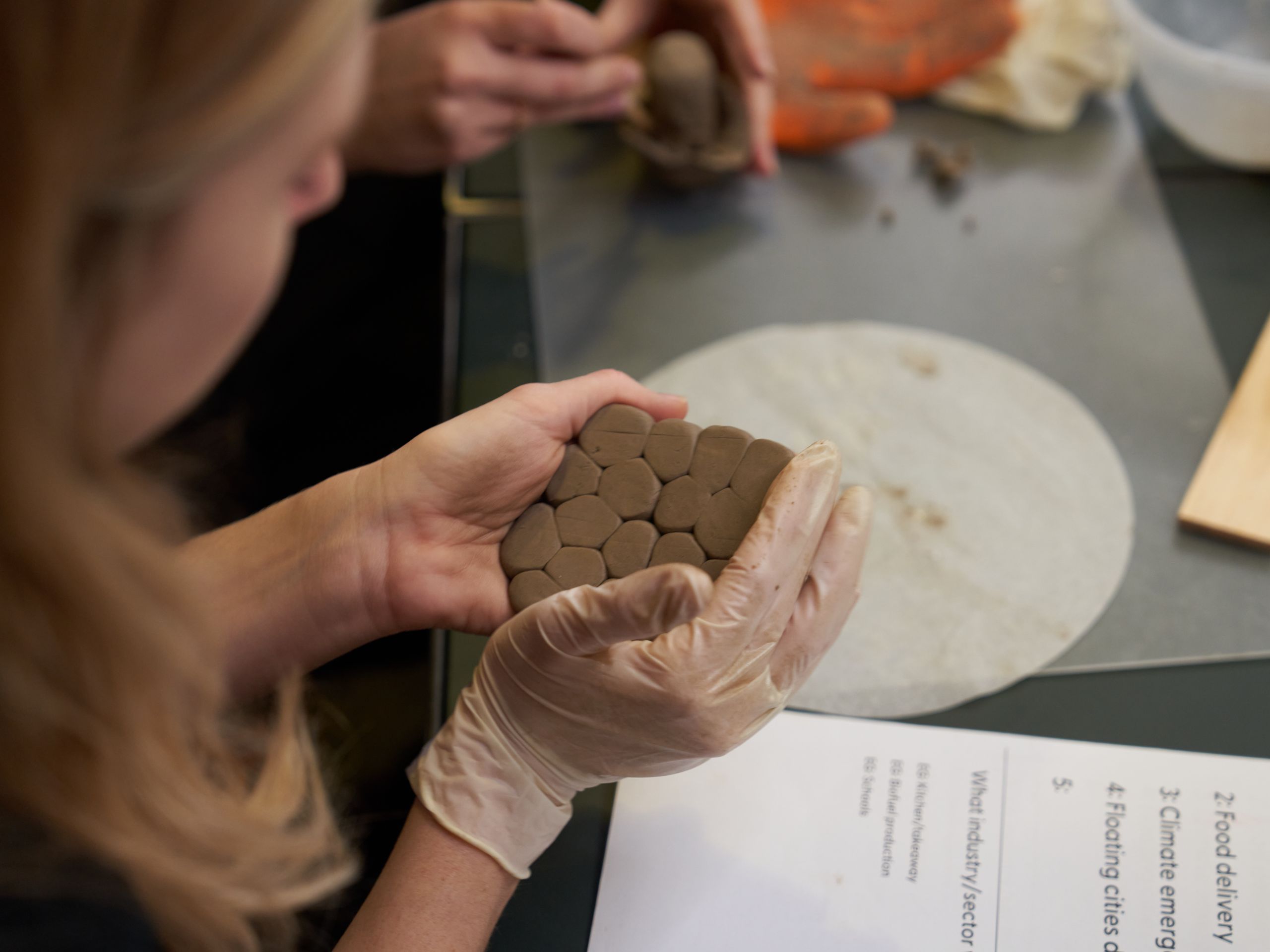This specific workshop was aimed to bridge the gap between a material-making workshop conducted in the initial phase and the subsequent presentation to a board comprising biofuel representatives from Argent and OLLECO. Both these companies play pivotal roles in the waste oil system, representing the upstream (generation of waste oil/fat at the source – commercial kitchens) and downstream (manufacturing of biofuel from waste oil/fat) sectors. Various workshop participants covered essential areas of labour in this waste oil system, dealing directly with oil and fat waste from either a waste management or a food perspective. The primary objective of this workshop was to illustrate crucial material intervention points, ensuring the effective functioning of the framework. Additionally, it sought to equip the participants with the knowledge and confidence necessary for practical and speculative interactions within the group.
In essence, this workshop served as a critical link in the waste oil system’s cycle, connecting material creation to design speculation and presenting these concepts to key stakeholders. The diverse representation from different sectors ensured a comprehensive understanding of the entire process, facilitating a holistic approach to waste oils and fats management, material science/speculation and biofuel production.
The devised workshop framework was as follows:
Act 1: Mini lecture series. Robert Johnson (Fatconomy introduction), Martin Kingsley (The biofuel process and fears for the future trade), Dr. Clemence Nadal (The power of fat – a material science introduction to fat and glycerol as a future material) and Yael Rosenburg (Ancient materials – History of clay vs history of fat, material interconnection)
Act 2: Make your own fat clay sample from a biofuel by-product – glycerol.
Act 3: Sample presentation from phase 1 material making workshop
Act 4: Material speculation craft. Creating a design of every participant’s choice that relates to key areas of discussion from the sample presentation.
Act 5: Group feedback, Q & A.
We devised a structure aimed at educating our group and sparking debate based on fresh insights. Initiating open discussions on complex subjects can be challenging, even with experts present. We evaluated various workshop models that could significantly contribute to our work. Our conclusion emphasized the importance of engaging in hands-on, playful crafting activities. This approach wasn’t just about easing tension; it was about comprehending the material within a design context, adding a novel dimension to the educational aspect of design development. Introducing craftsmanship into discussions about waste-to-energy was a step towards making the design process more transparent. The focus wasn’t on hypothetical materials but on a tangible by-product of biofuel: glycerol. Working with this substance provided practical, actionable insights as participants engaged hands-on with the material in question. Resulting in more embodied learning, this approach led to a more immersive and experiential form of collaboration. By engaging directly with the materials, participants were able to gain a deeper understanding and a more tangible connection to the concepts being discussed. This hands-on involvement facilitated a richer educational experience, enhancing the comprehension and retention of the information presented.







